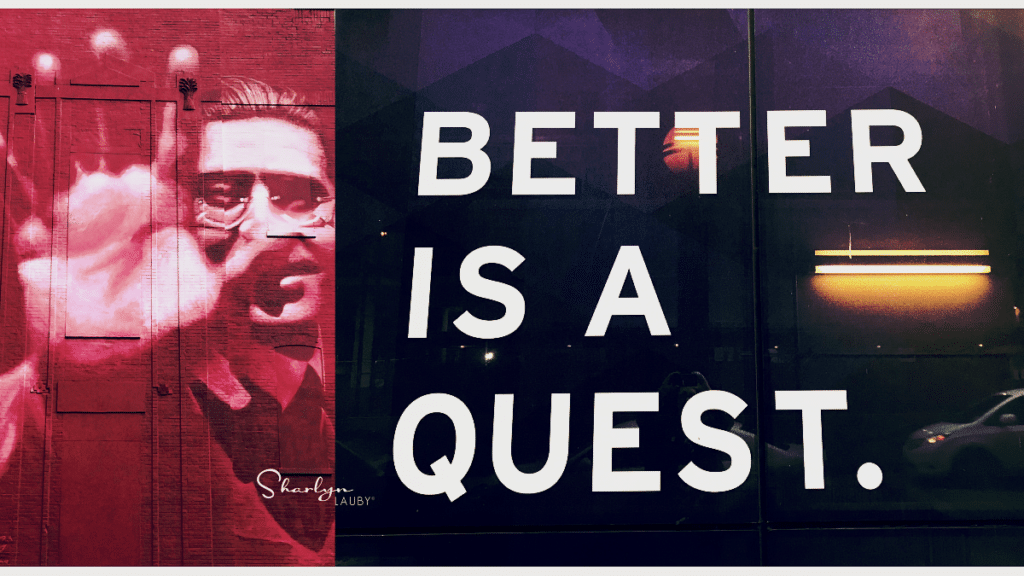Get Career Insights from People of All Ages – Ask #HR Bartender
Estimated reading time: 4 minutes
One of the things I’m starting to hear more about is “job seeker remorse”. It happens when someone makes a quick career decision about changing jobs or companies, only to discover that their new opportunity isn’t as great as they imagined. In fact, our friends at UKG just released some new research indicating at 43% of people who quit their jobs during the pandemic admit they were actually better off at their old job. And 1 in 5 have already boomeranged back to their former employer.
No one wants to be in this situation, which is why I believe today’s reader note is very timely.
I’m a retired HR in-house consultant. My role is to help new supervisors learn to become effective managers. After a few years of early retirement, my son asked me to teach him the same resilience and self-management strategies to help him deal with his supervisor, who was also young and ill-equipped to manage people. Subsequently, several my son’s friends came asking for similar help. So many young people will face working with ‘bad’ managers and there are few free resources to help them. I’d like my 3rd Act to help my son’s generation so they can collectively thrive.
Would you please point me towards any research exploring how iGen (sometimes identified as Gen Z) hires adjust to work world? Where is the friction? Where are the opportunities? For both employees & employers.
Young workers face a plethora of future challenges: the gig economy, fewer permanent positions, fewer employers offering pensions, less training/career development support – while exhibiting higher rates of mental health issues, underdeveloped social skills, and minimal emotional resilience. Now, task an inexperienced, ineffective supervisor to manage these workers: it’s a recipe for bad outcomes for both the employee and employer. New workers don’t know what they don’t know. I want to provide those who wish to find out with a free way of learning how to be a great hire while being a healthy well-rounded individual.
First, let me say that I love how this reader is putting their talents to great use. And that they’re thinking about their future as a retiree. There’s no reason to feel as we get older that we can’t learn new things and even have career goals. As I read this note, I felt there were aspects of it that aren’t age specific. I know people in my age bracket that want and need mental health benefits. They are facing career challenges because organizations have decided to “hire” young professionals and “contract with” older pros. And they have their fair share of bad managers who have little or no training.
Regarding the question about research specifically aimed at younger professionals, I don’t have a study that I can site. But I do want to share a couple of thoughts.
One of the first career resources that came to mind was Dan Schawbel, best-selling author and managing partner of Workplace Intelligence. We had Dan on an HR Bartender podcast episode recently where we discussed how technology can make the workplace more human. Dan is great about sharing workplace data, so I would check out his books, podcast, and social media accounts. He’s also done extensive research about the Millennial workforce. I know it’s not iGen, but it could be a good place to start.
The other career resource that I would encourage is intentionally finding someone who isn’t in the same age bracket. I believe there is value in the cross-generational conversation. Sometimes that value is making the decision “that’s something I don’t want to do”.
The last career resource I want to emphasize is self-management. The reader mentions it in the note above. Regular readers of this blog know I’m a fan of self-management principles. We can use the principles to find the career development resources that work best for us. I do feel that self-management involves a tremendous amount of self-awareness, so some of the research that individuals need to do includes getting to know themselves.
If you have any resources that you feel would be helpful, please leave a comment below. I’m sure this reader would appreciate it. Knowing ourselves and what we want from our career is so important. No one wants to have “career remorse”.
Image captured by Sharlyn Lauby while attending the SHRM Annual Conference in Chicago, IL
16